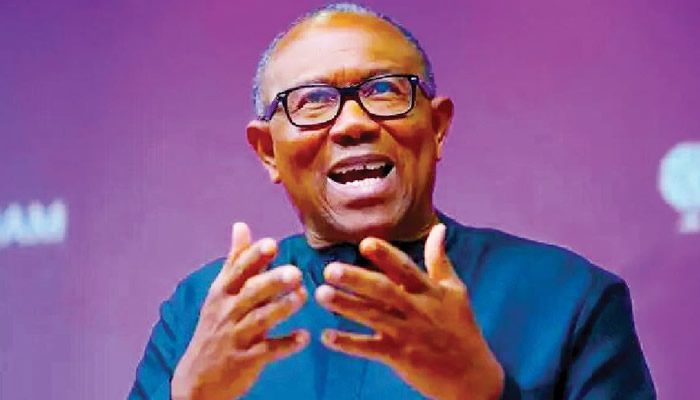Peter Obi’s Cancelled Benue Visit and the Politicization of Humanitarian Efforts
The planned humanitarian visit of Peter Obi, the Labour Party’s presidential candidate in the 2023 general election, to Benue State was abruptly cancelled following a cautionary statement issued by the state government. Obi, who was scheduled to visit internally displaced persons (IDP) camps, health facilities, and educational institutions, expressed disappointment over the cancellation, citing the growing trend of politicizing charitable efforts in Nigeria. The Benue State government, led by Governor Hyacinth Alia, warned against unscheduled visits, citing security concerns and requiring prior permission from the Benue State Emergency Management Agency (SEMA). Obi, however, maintained that his visit was purely humanitarian and devoid of political motives, highlighting his extensive history of philanthropic work both within and outside of political office.
The controversy surrounding Obi’s visit raises concerns about the blurring lines between politics and humanitarianism in Nigeria. While the government has a legitimate responsibility to ensure security and manage access to vulnerable populations, the timing and tone of the statement, coupled with the alleged lack of prior communication with Obi despite his efforts to reach the governor, suggest a potential political motivation behind the cancellation. This incident underscores the challenges faced by individuals and organizations seeking to provide humanitarian assistance in politically charged environments, where even well-intentioned efforts can be misconstrued or obstructed due to partisan interests.
Obi’s planned itinerary included visits to a school project, a nursing institution, and an IDP camp in Gboko, reflecting his commitment to supporting education, healthcare, and the welfare of displaced populations. He emphasized his long-standing engagement in humanitarian work, citing his involvement in disaster relief efforts such as the Haiti earthquake response. By drawing parallels to his previous humanitarian endeavors, Obi sought to demonstrate the sincerity of his intentions and counter the narrative that his visit was politically motivated. The situation illuminates a broader societal issue where genuine acts of compassion and service are often viewed through a political lens, hindering the delivery of much-needed aid to those in need.
The government’s insistence on prior permission from SEMA for visits to IDP camps raises questions about the bureaucratic hurdles faced by humanitarian actors in Nigeria. While regulations are necessary to ensure accountability and coordination, excessive bureaucracy can create delays and impede the timely delivery of assistance, particularly in emergency situations. The requirement for written permission could potentially discourage private individuals and organizations from engaging in humanitarian work, thereby limiting the support available to vulnerable populations. A balance must be struck between maintaining necessary protocols and facilitating efficient and effective humanitarian responses.
The incident also highlights the importance of open communication and collaboration between government authorities and humanitarian organizations. Obi’s attempts to contact Governor Alia and his aides prior to the visit, coupled with his sharing of itinerary details with local security personnel, suggest a willingness to coordinate with the state government. The lack of a timely response from the governor’s office contributed to the miscommunication and ultimately led to the cancellation of the visit. Effective humanitarian action requires clear channels of communication and mutual respect between government officials and those involved in providing assistance.
The cancellation of Obi’s visit to Benue State underscores the need for a broader discussion about the relationship between politics and humanitarianism in Nigeria. While security concerns are valid, it is essential to ensure that such concerns are not used as a pretext to obstruct legitimate humanitarian efforts. Transparent and accountable governance, along with clear guidelines for accessing vulnerable populations, can help to build trust and facilitate effective humanitarian interventions. Furthermore, fostering a culture of collaboration and open communication between government authorities, political actors, and humanitarian organizations is crucial to ensuring that aid reaches those who need it most, regardless of political affiliations. A clear separation between political motivations and genuine humanitarian efforts needs to be maintained to ensure the well-being of vulnerable populations and prevent the politicization of aid.














